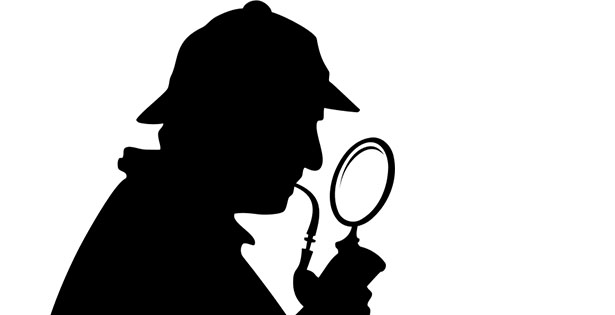Does a Forensic Accountant Need a Private Investigator License?
Know your state licensing laws!
This article examines an important issue that is only now coming to light in cases being litigated: namely, whether professionals also need an investigator license. There is no absolute answer, and professionals—especially forensic accountants and fraud examiners—are advised to read this article.
Some of the work conducted by forensic accountants and other forensic experts includes fraud investigations, searching for hidden assets, conducting background checks, and locating individuals who have skipped out on child support payments or judgments. Â In conducting these investigative services, we search public records and documents provided by the client or attorney, but sometimes it is necessary to go directly to the source to obtain information. Â This could include interviewing friends and family members of the suspect, following the suspect, or searching for physical assets owned by the suspect.
If you are conducting litigation and investigative services as a forensic accountant, have you considered the possibility that you might need to have a private investigator license from your state or municipality? Â Consider the reaction of the jury if you were asked while testifying at a trial, if you were required to have a private investigator license to perform a fraud investigation that you were testifying about, and you did not know the answer. Â The consequences could be even worse if you were required to have a license, and you did not possess one. Â At a minimum, your status as an expert in the eyes of the jury would be reduced; in a worst case scenario, your testimony could be excluded.
Numerous jurisdictions require a private investigator license for conducting various types of investigations. Â The requirements for needing a private investigator license, as well as the requirements for obtaining the license and penalties for performing an investigation without a license, vary by state and municipality.
States that require investigators to be licensed without any exceptions include Connecticut, Delaware, Massachusetts, Montana, Nebraska, New Jersey, New Mexico, Oklahoma, Oregon, Pennsylvania, Rhode Island, and Virginia
States that have exemptions from private investigator licensing for Certified Public Accountants (CPA), if the investigation is part of the practice of accounting, include Alabama, Florida, Illinois, Indiana, Kansas, Kentucky, Louisiana, Maryland, Michigan, Missouri, Nevada, New Hampshire, North Dakota, Ohio, Tennessee, Texas, and Utah.
States that have exemptions from private investigator licensing for attorneys include Arkansas, Florida, Georgia, Iowa, Louisiana, Maine, Minnesota, New York, North Carolina, South Carolina, Vermont, West Virginia, and Wisconsin.
States that have exemptions from private investigator licensing for specific types of investigative services include, Arizona, California, Hawaii, Maine, and Washington.
States that do not currently require licensing include Alaska, Idaho, Mississippi, South Dakota, and Wyoming. Â In Alaska and Wyoming, the licensing of private investigators is done at the municipal level. Â The state of Colorado has voluntary licensing for private investigators.
The issues for performing an investigation without proper licensing could go further than just being embarrassed in court.  There could be both civil and criminal penalties for operating without a license.  California has a special unit called the Unlicensed Activity Action Unit (UAAU), which is part of the Bureau of Security and Investigative Services (BSIS) and whose sole mission is to investigate and punish individuals and firms conducting investigative services without proper licensing.  In some states, anyone can report unlicensed activity by completing a form on the Internet. The penalties for performing unlicensed activity can be severe.  In Michigan, for example, it is a felony punishable by up to four years in jail and/or a $5,000.00 fine, and in Indiana, although it is only a misdemeanor, the penalty is forfeiture of all compensation earned while performing unlicensed activities.  It is important to remember that since the licensing of private investigators is done at a state level, having a license in your home state may or may not allow you to conduct investigative services in other states, depending on that state’s laws.
The risk for performing unlicensed activities may extend to the client and the attorney who hired the person who performed unlicensed activities. The Pellicano case in California set the precedence for sanctioning or disbarring attorneys who allow unlicensed individuals to testify in court. Â In Kansas, Washington, and other states, hiring an unlicensed private investigator is illegal, and the client could face the consequences of their actions.
This article is for informational purposes only. Specifically to bring the issue of potential unlicensed activity to the attention to forensic accountants. Nothing in this article should be construed as legal advice and readers are encouraged to seek legal advice if they believe they may have an issue. It should also be noted that state legislatures change and amend laws and regulations on a regular basis so some of this information might be out of date, or could be in the process of being changed.
Robert Minniti is the president and owner of Minniti CPA, LLC (http://www.minniticpallc.com)    He maintains an active valuation, forensic accounting, risk management, internal audit, business consulting, and fraud examination practice. In his spare time, he teaches graduate-level courses in accounting, fraud examination, fraud criminology, ethics, forensic accounting, external audit, internal audit, tax, and real estate finance at DeVry University, Grand Canyon University, and the University of Phoenix. Robert has designed graduate and undergraduate courses for Grand Canyon University and Anthem College. He is also a writer and public speaker with experience in forensic accounting, fraud examinations, financial audits, internal audits, compliance audits, real estate valuations, business valuations, real estate financing, internal control development, business continuation planning, risk management, financial forecasting, and Sarbanes-Oxley compliance work. As if that is not enough, he is an instructor teaching continuing professional education classes for the Arizona Society of Certified Public Accountants and the American Institute of Certified Public Accountants. He can be reached at (602) 354-2900 or by e-mail at bob@minniticpallc.com.


